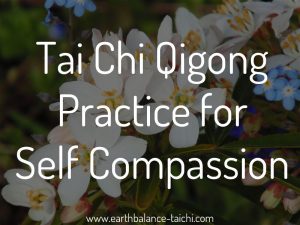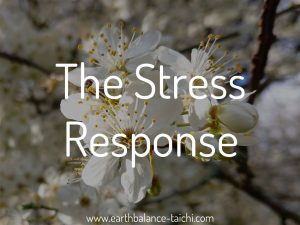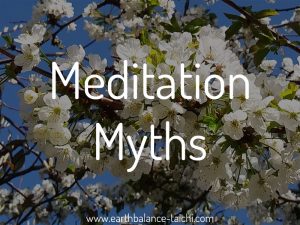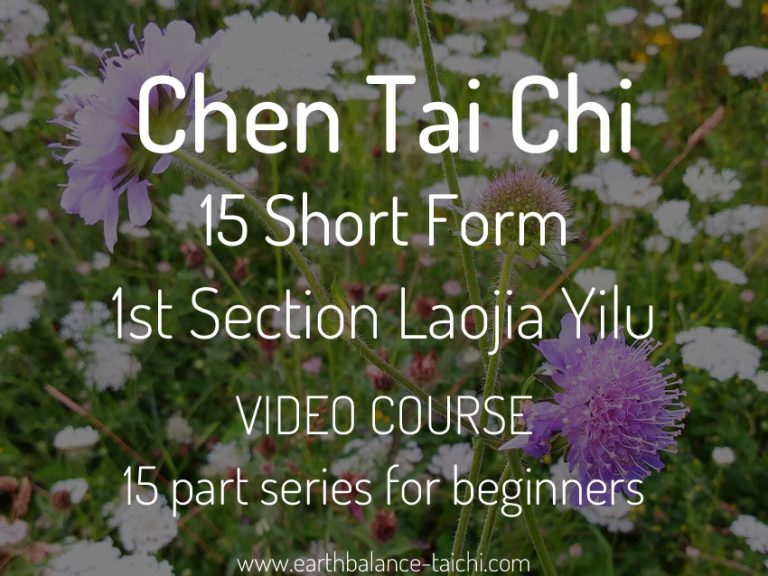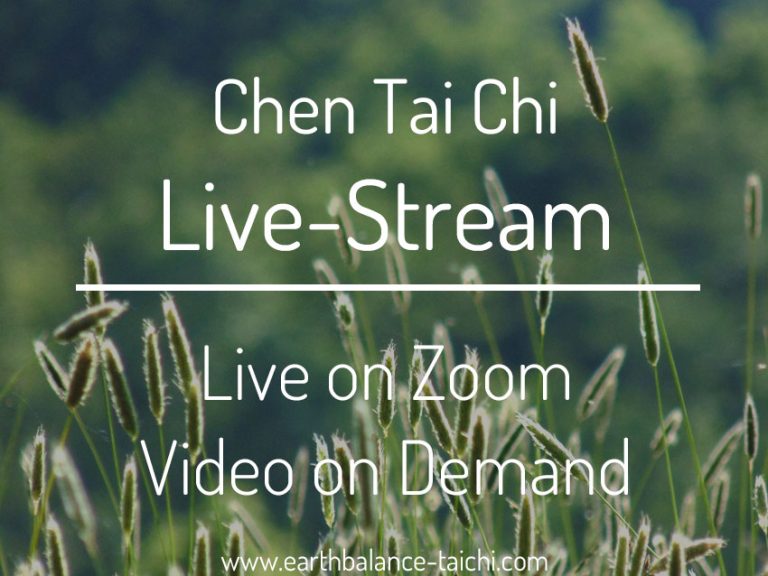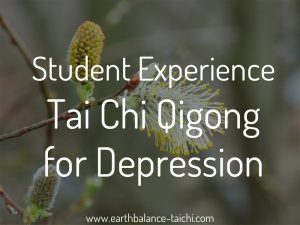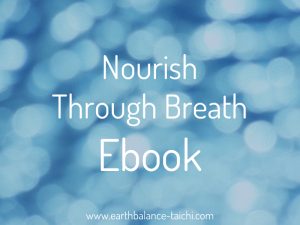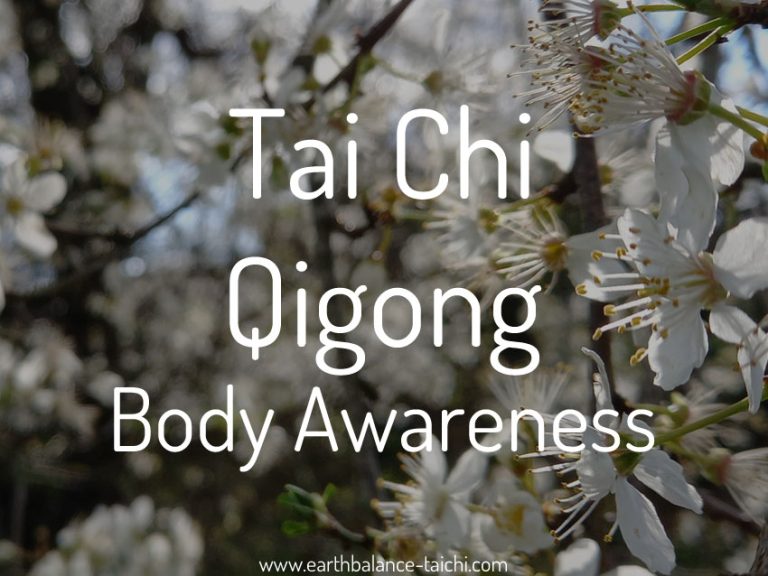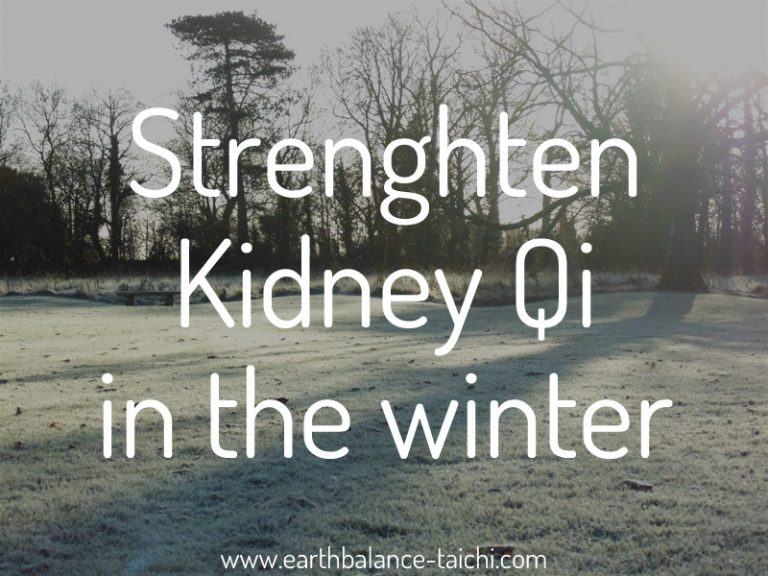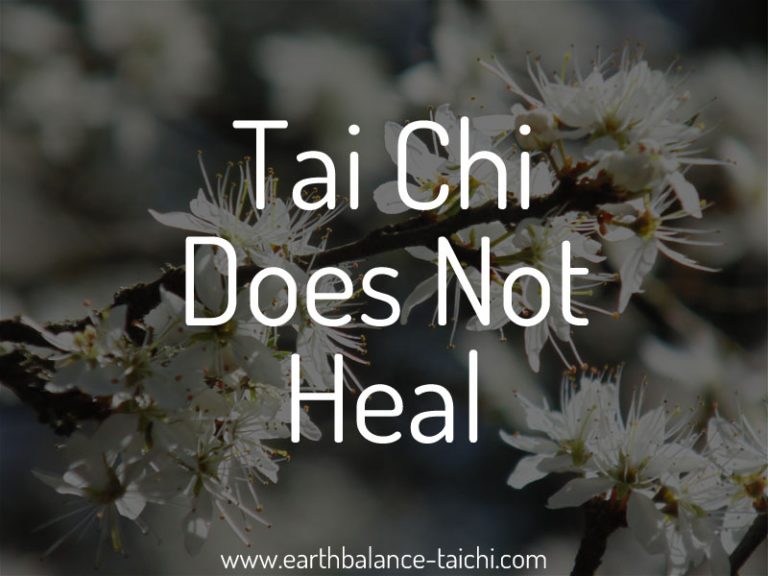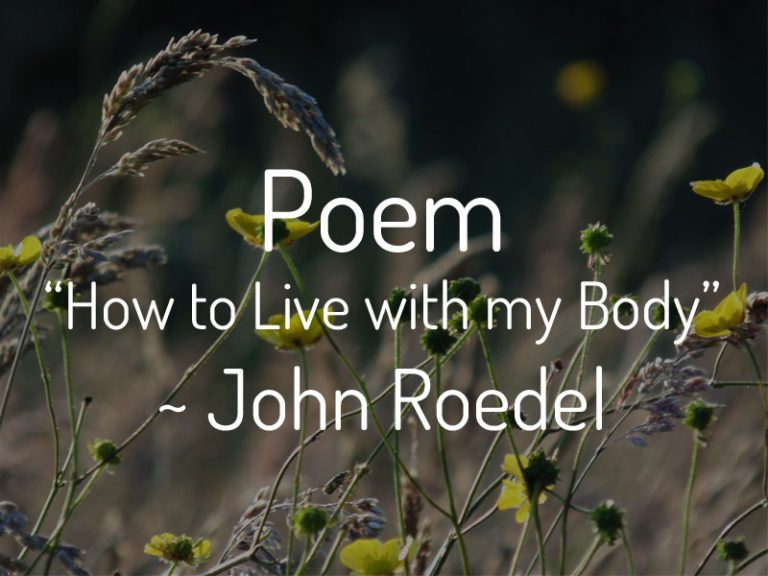Tai Chi for Anxiety and Depression
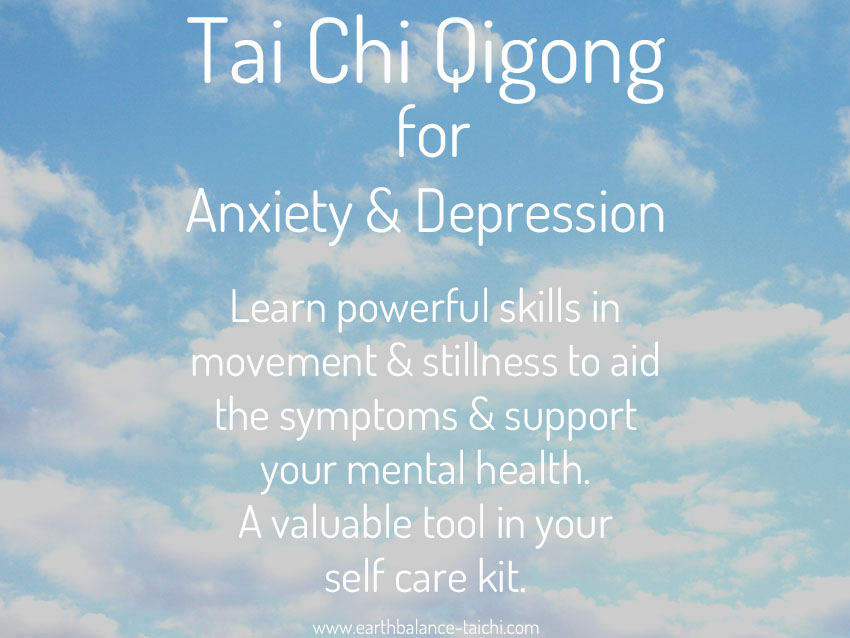
Tai Chi for Anxiety and Depression
I am often asked will Tai Chi and Qigong cure anxiety and depression? Simply no. They are not a replacement for professional psychology, psychotherapy or talking therapy. If you live with anxiety or depression, it is advised to seek professional advice. Tai Chi, Qigong and Taoist mediation can help support your mental health, regular practice can help you manage the symptoms of anxiety and depression, and they can be a valuable tool in your self care kit.
Learning to Be Here Now
When practicing Tai Chi and Qigong, there is a single point of focus. When moving slowly, with an aligned posture and deep breathing, this brings your mind into the present moment. Learning the choreography and layers of principles is complex, it takes a lot of deliberate focus. When you are concentrating on the movements, you are not able to think about the past or the future, as there is no space to! That focus helps to ease cyclical negative thinking and is a positive distraction. You are consciously choosing to focus on something else for a period of time. This helps to calm the mind, which in turn gives the mind and body a break from the symptoms and effects of our automatic stress response.
The Tai Chi and Qigong movements can be used at anytime during your day to help refocus the mind towards a neutral state. They can be used when coming out of a stressful situation to decompress, or before going into a stressful situation to give you grounding. If you are able to catch yourself in these difficult moments, observing your triggers, and are able to pause and know that you have the tools to refocus, this can be an important part of mental health self-care.

Healthy Body - Healthy Mind
By moving the body in a sophisticated way through Tai Chi and Qigong movements, this also aids all systems in the body to function better:
- Circulatory system
- Digestive system
- Endocrine system (hormones)
- Integumentary system/ Exocrine system
- Lymphatic system / Immune system
- Muscular system
- Nervous system
- Renal system / Urinary system/ Excretory system
- Reproductive system
- Respiratory system
- Skeletal system
When the functions of the body improve, this also has a positive impact on mental health. Self care of the physical body is a very important step in personal well-being.
Think about an increase in oxygen supply to the brain, slowing down of the central nervous system to activate the body’s natural relaxation response, slowing down of the heart rate, reduction in high blood pressure, calming down of hyper-functioning ‘stress’ adrenal glands, balancing of the hormone system, an increase in spinal fluid reaching the brain, a reduction in muscular and soft tissue pain through release of physical tension, and activation and drainage of toxins through the lymph system. To mention a mere few. All body systems are important to our physical and mental health, we nourish the body to help take care of our minds.
Physical Relaxation and the Mind
One of the principles in Tai Chi and Qigong training is relaxation of the muscles in the movements. We learn to release resistance in the body, to truly relax and let go of the muscles. Relaxing chronically tense muscles takes a long time to learn, the paradox is it takes hard work to relax. The more we train the body to relax, the better chance you have of your muscles relaxing naturally in your daily life. Generally, most people live in a state of chronic muscular tension, with inappropriate muscle use. This is a drain on our energy levels causing fatigue. Fatigue further depletes the resources of the both the mind and body.
Sometimes it is easier to approach the mind through the body. Instead of meeting the mind head on and trying to change something about ourselves, we go through the body to help ease that resistance. It’s a much gentler approach. The body can lead the mind by example with this ‘applied relaxation’ technique, which in time helps to ease mental tension, negative thought patterns and cyclical thinking etc. If you learn to relax the body, the mind has to follow. This is why Tai Chi and Qigong can be of great support for mental health at any time of life.
Balancing Emotions
Generally when living with anxiety and depression, you are living with a high degree of negative emotion. There is little emotional balance in these times, which can be debilitating both mentally and physically. Forcing the mind into an illusion of change can be harmful e.g. forcing positive emotion during times of distress. Our emotions are there to guide us, and each one of them is important, with a need for validation and release. In Tai Chi and Qigong, it is not a case of blocking out our thoughts with force, instead we focus on the slow and mindful movements and allow our mind to come and go. We try not to hold onto any of the thoughts that come up, letting them pass by without triggers and hooks. We only observe. It's a constant cycle of returning to focus and returning to relaxation as the mind drifts. With that applied focus and applied relaxation during the movements, our mind is elsewhere focusing on a healthy activity, which helps to re-balance the emotional state, aiming to tip the scale of positive and negative emotion towards a neutral position. Tai Chi and Qigong can be a positive distraction. Read further about Tai Chi and Qigong for a natural boost of serotonin, dopamine and endorphin levels here.
Barriers
When living with debilitating anxiety and/or depression, taking steps to help yourself can be an impossible barrier. This is why Tai Chi and Qigong alone are not the complete solution. Having the drive to start attending a public class to learn the practices will most likely be out of reach for you. By seeking the professional services of talking therapy, such as a psychologist of psychotherapist, over time this may give you the space and room within yourself to approach Tai Chi and Qigong. Managing mental health is a multi pronged approach. Over time you will develop your own pattern or daily routine of self care. This may include talking therapy, nutrition, exercise, meditation, creativity, social contact and so on. Every aspect of life is important to our mental wellbeing.
Traditional Chinese Medicine
Going deeper into Taoism, in the theory of Traditional Chinese Medicine (TCM) each of the five yang organs is associated with a specific set of positive and negative emotions. When being treated by a TCM doctor for mental health difficulty, they will directly treat the organs that are responsible for the emotions you are experiencing, as well as the organs that drain, support and are in conflict with that organ using the 5 Element theory. You can read more about the organs and emotional health here.
Resources
Read the Taoist view on living with depression by my teacher Casey Kochmer and view his video below:
* Please note that the Taoist practices are not a replacement for conventional medical treatment. Please speak with your doctor prior to starting a new exercise programme. This article is for information purposes only and must not be taken as medical advice. *
